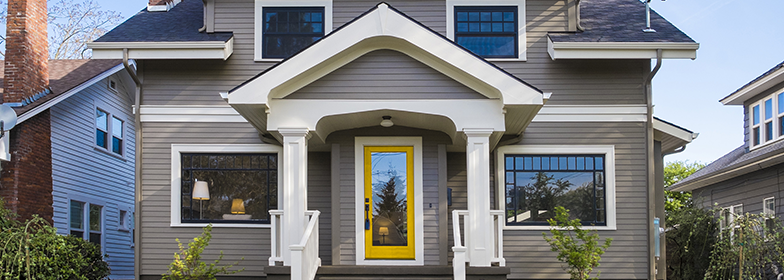
How to qualify for an affordable mortgage
Are you ready to say goodbye to renting? You may be shopping for a new home sooner than you think. For low-to-moderate-income families, homeownership can provide stability and the benefit of building equity over time.
Fortunately, many home loans and mortgage programs are designed to make homeownership more affordable, including low- or no-down-payment mortgages and assistance programs that provide cash toward your closing costs or down payment.
We’re here to help you learn how to qualify for the best one for you in this introduction to affordable mortgages.
What’s a low down payment mortgage?
A low down payment mortgage is an affordable home loan that requires a small percentage of the home’s purchase price paid at closing. If you have a low-to-moderate income, an affordable mortgage may help if saving for a larger down payment is challenging.
To qualify for a low down payment mortgage, you can expect to put down as little as 3 percent of your home’s purchase price on a Conventional loan. Affordable mortgages also include government-backed home loans, which may finance the entire purchase of your home or as little as 3.5 percent down, depending on the financing needs.
Home loans with low down payments
Here are the differences between some of the most common home loans with low or no down payment options.
0 percent down options
VA home loans benefit borrowers who are active U.S. military or veterans and their families.
- No private mortgage insurance (PMI) requirement
- Lower interest rates than traditional mortgages with credit scores as low as 540
- Reduced fees as compared to Conventional mortgages
USDA home loans benefit borrowers with low-to-moderate income purchasing in rural areas.
- No down payment for eligible borrowers
- Better-than-average interest rates
- Credit scores as low as 540
3.5 percent down
FHA home loans benefit borrowers with lower credit scores and low-to moderate-incomes
- More flexible qualification requirements than other home loan types
- Down payments as low as 3.5 percent
- Credit scores as low as 580*
3-19 percent down
Conventional home loans benefit borrowers with good credit.
- As little as 3 percent down
- PMI can be removed once 20 percent equity is reached
- Credit scores as low as 620
What helps and hurts affordability
These four factors help determine what is affordable for you:
-
Down payment: A home loan with a low down payment may allow you to purchase sooner. However, a lower down payment upfront means larger monthly mortgage payments.To see how the amount of your down payment affects the affordability of your monthly mortgage payment, try out different scenarios with our mortgage payment calculator.
-
Debt: You don’t have to be debt-free to buy a home. However, if your debt-to-income ratio (DTI) is high, a monthly mortgage payment may not be affordable at this time. Enter your total debt and total monthly income into our mortgage affordability and pre-qualification calculator to automatically calculate your DTI.If your debt-to-income ratio is in good standing, meaning you have a manageable debt load and money left over after making your monthly debt payment, you may qualify for a low down payment mortgage.
-
Income: Your income, home purchase price, monthly debt payments and homebuying expenses all factor into whether you can cover your future mortgage payments. Get an idea of your mortgage affordability based on your income with our mortgage income calculator.Individuals with incomes below area median levels and borrowers with little to no money saved for a down payment may qualify for a down payment assistance (DPA) program.
-
Interest rate: The higher the interest rate, the less buying power. By understanding the impact of home prices and interest rates, you can create a plan to maximize your buying power. Use our buying power calculator to determine how economic conditions will affect how much home you can afford.
Explore affordable mortgages with Guild Mortgage
If you’re ready to transition from renting to buying, or it’s time for a bigger home, we’ll help you choose the right loan for your needs and be there for you from start to finish on the road to homeownership. Check out our helpful guide to help you navigate the homebuying process.
*Credit scores from 540-579 require a minimum of a 10% down payment.
The above information is for educational purposes only. All information, loan programs and interest rates are subject to change without notice. All loans subject to underwriter approval. Terms and conditions apply. Always consult an accountant or tax advisor for full eligibility requirements on tax deduction.
